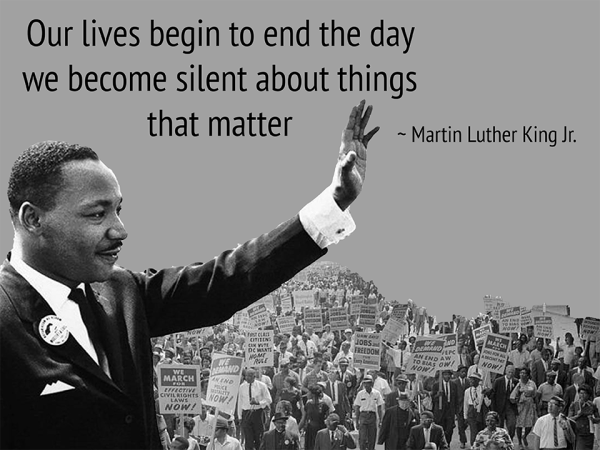
As students settle back into their routines after the winter break, they experienced the first long weekend of the year. More than just an extra day off, this three-day weekend served as a time for reflection and recognition of the challenges and achievements of Nobel Prize Laureate and Civil Rights leader Dr. Martin Luther King Jr. in his relentless quest for equal rights.
It was only through 32 years of continuous campaigning that Dr. Martin Luther King Jr. Day became a federal holiday, honoring his birthday on Jan. 15 and his long-lasting legacy on all people via the movement towards ending racial discrimination.
Through his many non-violent mediums including speeches, marches and conferences, Dr. King advocated for racial justice and increased engagement in the Civil Rights Movement.
To honor his sacrifices and accomplishments, the National Parks Service has started a rehabilitation project to protect Dr. King’s birth home in Georgia, preparing to reopen it for visitors in November 2025. The Martin Luther King Jr. National Historical Park is open to the public to learn more about his strides to reach equality.
To honor his legacy, not only do students have a day off, many activities occur throughout the U.S. to commemorate him, including the 39th Annual Kingdom Day Parade highlighted on our school’s Black Student Union’s Instagram page.
With the club dedicated to inclusivity and “spreading awareness and appreciation to all people of color,” BSU has dedicated informative posts to help spread awareness of the significance of this day.
BSU’s club president Djaeda Hall remarks on the importance of recognizing the holiday as Dr. King overcame great struggles to reach the certain level of equality we see in our contemporary society.
“I believe it is important to recognize this holiday because Martin Luther King Jr. was a man who fought to give Black people their rights,” Hall said. “MLK had a dream and fought for that dream I, and all my fellow black students and peers can go to school, hang out with their friends that are of different ethnicities without feeling inferior or that they don’t belong.”
This is the inclusivity and equal opportunity that Dr. King fought for, with the motivation that “ four little children will one day live in a nation where they will not be judged by the color of their skin, but by the content of their character.”
While there has been great change in society since Dr. King’s assassination, there are still injustices seen towards people of color. These injustices continue to be fought against, as seen by the Crown Act, passed in 2019. This is one of many injustices that continues and has been noted by Hall.
“Although we are now given equal opportunity, we still are not treated as equals,” Hall said. “Just recently, we had to get the Crown Act put in place so that we weren’t discriminated against in school and the workforce just for our hair. Black people are fighting every day to still have equality. It didn’t just happen overnight and it’s not going to just happen overnight.”
While it is important to honor his name and the struggles King made, as they have changed the lives of many, Hall shares that it is also important to continue working as a community to fully extend equality to all people.
“I think the most important thing that should be remembered is that Dr. Martin Luther King started a fight for equality and did his part, but it’s our job as a community to continue to fight to protect his legacy by coming together and doing our part to combat racial injustice,” Hall reflects.
In all, through Dr. King’s struggles, people of color have gained rights and equal opportunities, but there are still injustices that must be fought for.
After all, as King said, “Our lives begin to end the day we become silent about things that matter.”


